Farming after retirement: A couple in Surigao del Sur established a farm to continue their passion for agriculture
By James Tababa
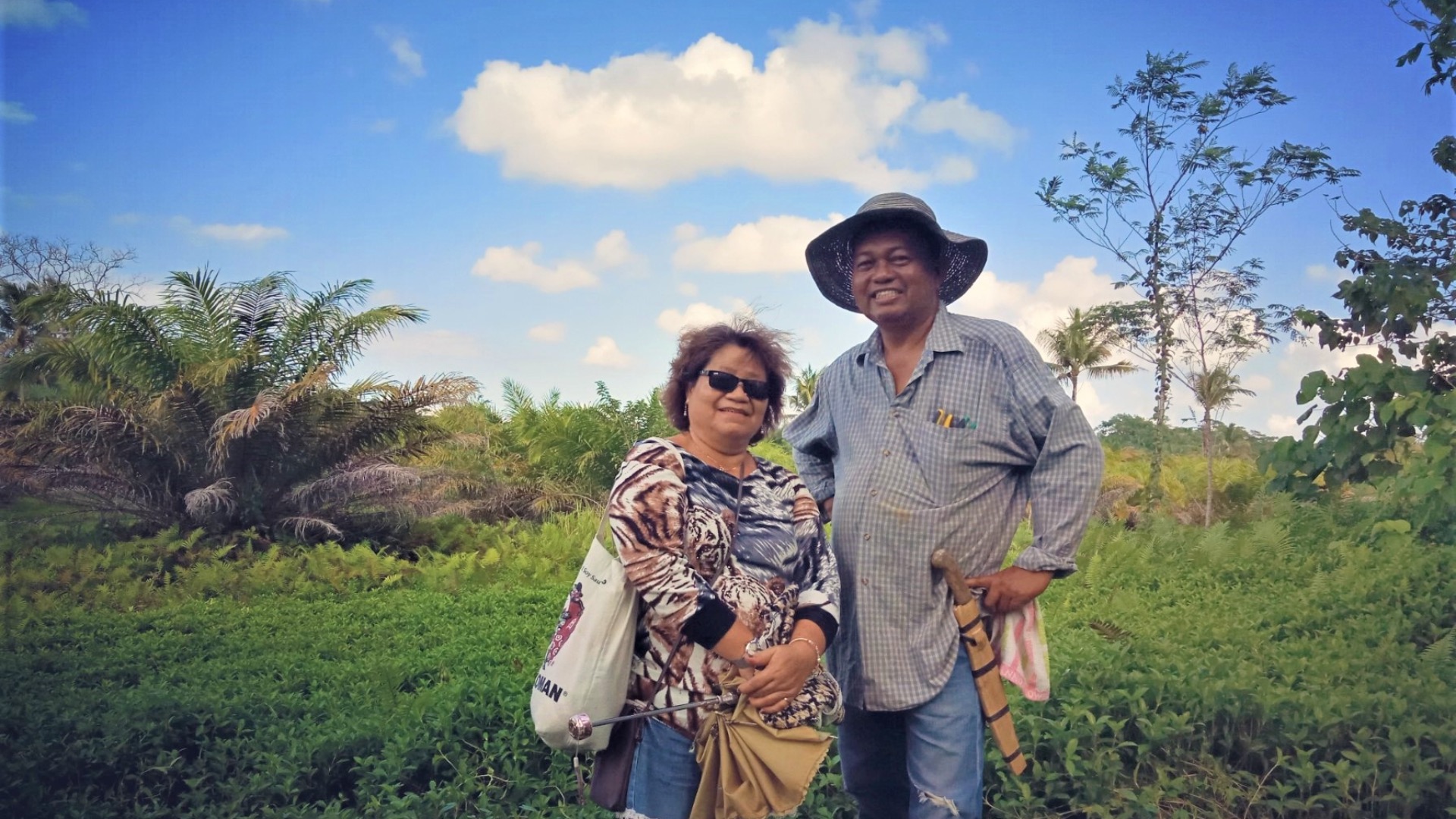
After devoting their lives to raising a family and tending to their home, Dominga Ebare and her husband, Ricarte Ebare, decided to establish a farm after retirement. Their ambition was to create a farm that not only engaged in but also prioritized organic and sustainable methods.
Ricarte is a licensed agricultural engineer and Dominga graduated with a degree in BS Agricultural Technology. After getting married, Dominga focused on homemaking and nurturing their garden while Ricarte worked in a private company. Their farming journey started in 2011 when they established OTAW (Once Tasted Always Wanted) farm in Hinatuan, Surigao del Sur that is planted to coconut, cacao, coffee, bamboo.
“Currently, since all our children have graduated and my husband has retired, we are now enjoying managing our farm and are very hands-on in applying agricultural practices and in dealing with our co-farmers,” Dominga said.
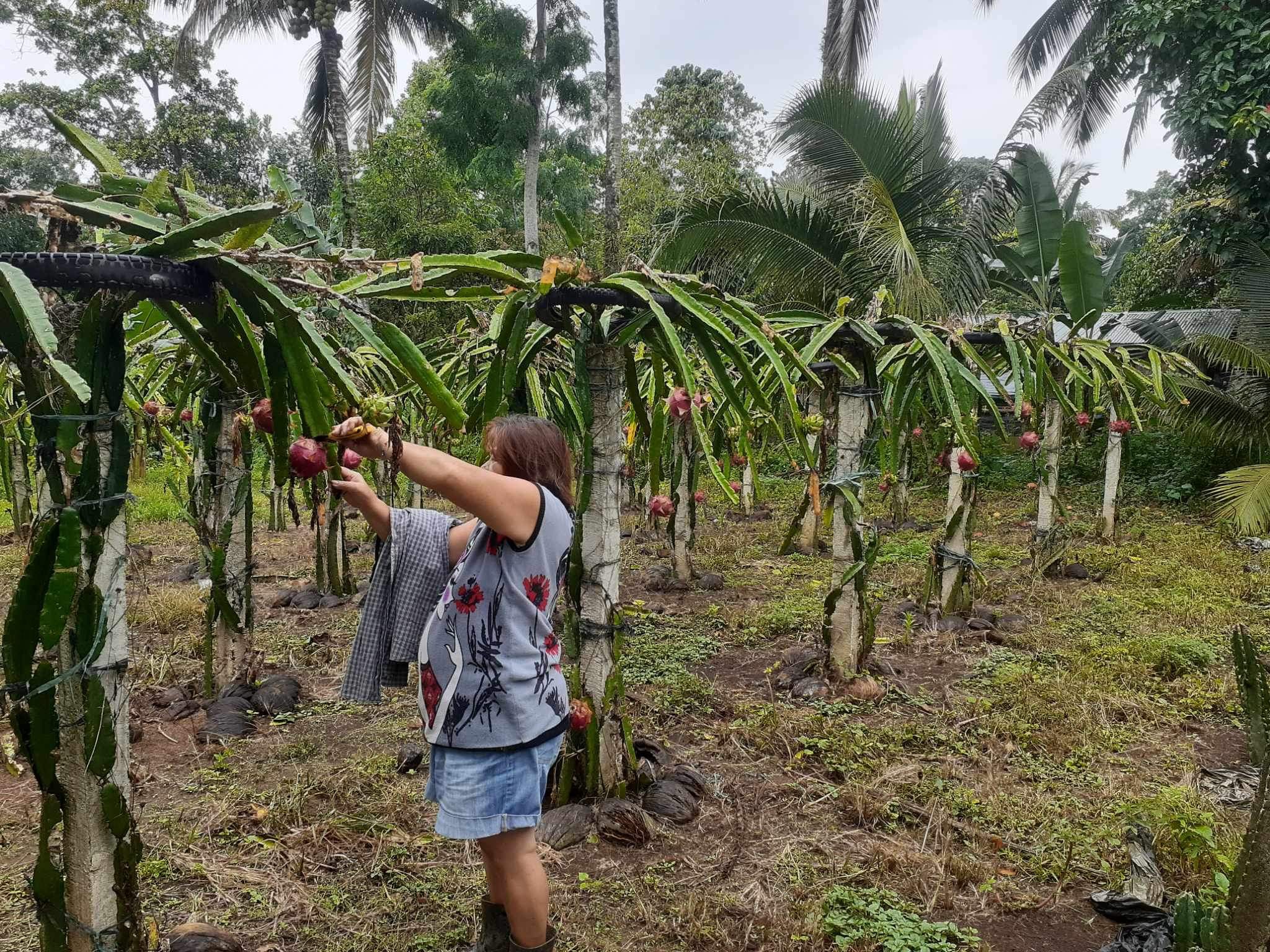
Farming products and practices
Dominga shared that their farm focuses on cultivating dwarf coconuts as the main crop, with the native tall variety also thriving there. Their farm has more than 400 coconut trees.
“The coconut is known as the "tree of life" because we can use every part of it, from the roots to the leaves,” Dominga said.
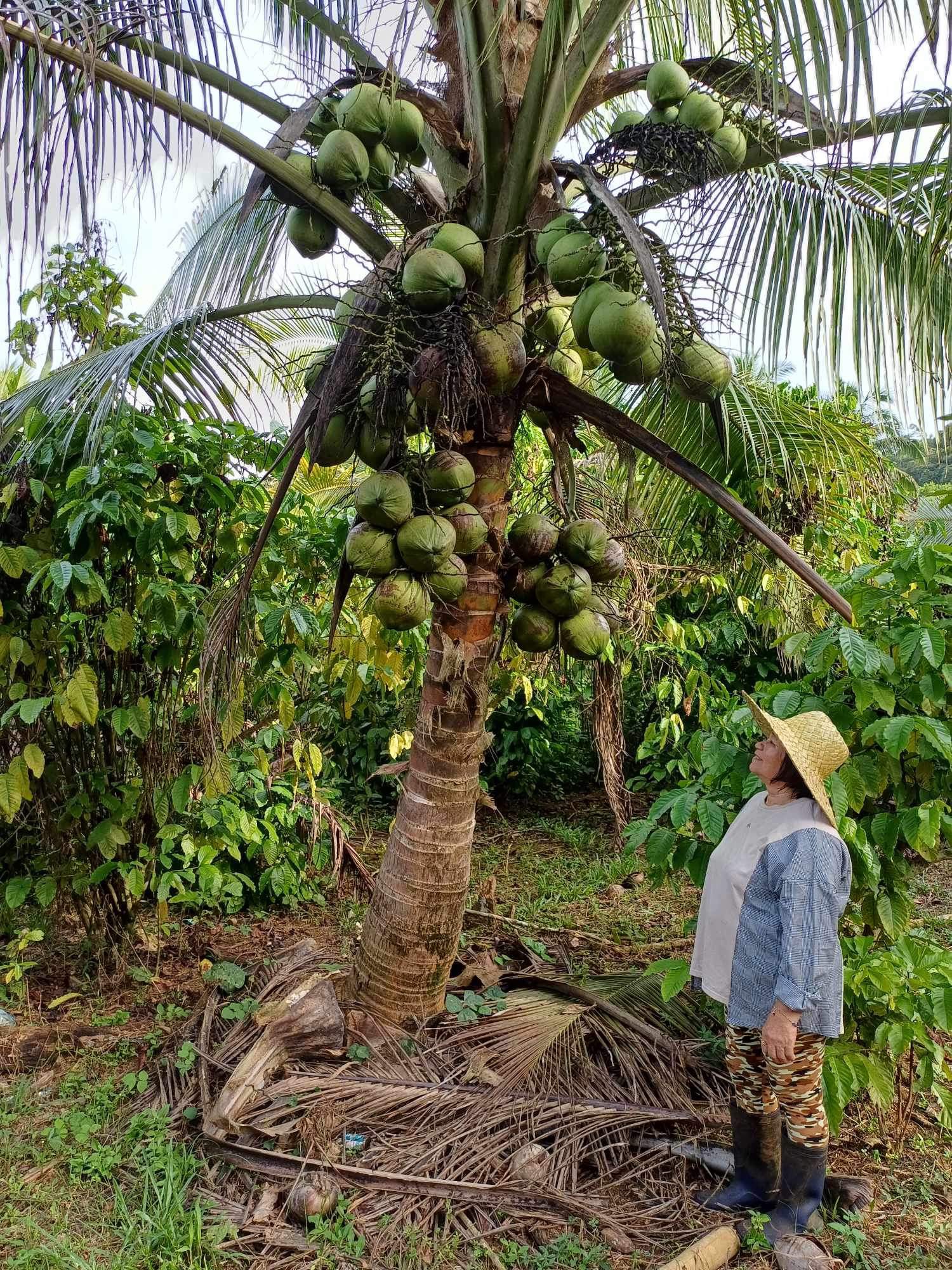
Their product lineup predominantly features coconut-based essentials like tuba, coconut vinegar, and virgin coconut oil (VCO). They've also introduced staples like traditional coconut cooking oil, coconut water vinegar, and frozen coconut milk as well as non-coconut items such as spicy vinegar and tablea from cacao.
Their commitment to learning and innovation led them to participate in VCO and cocosugar processing, refining their skills through education at a Technical Education and Skills Development Authority (TESDA) -accredited farm school.
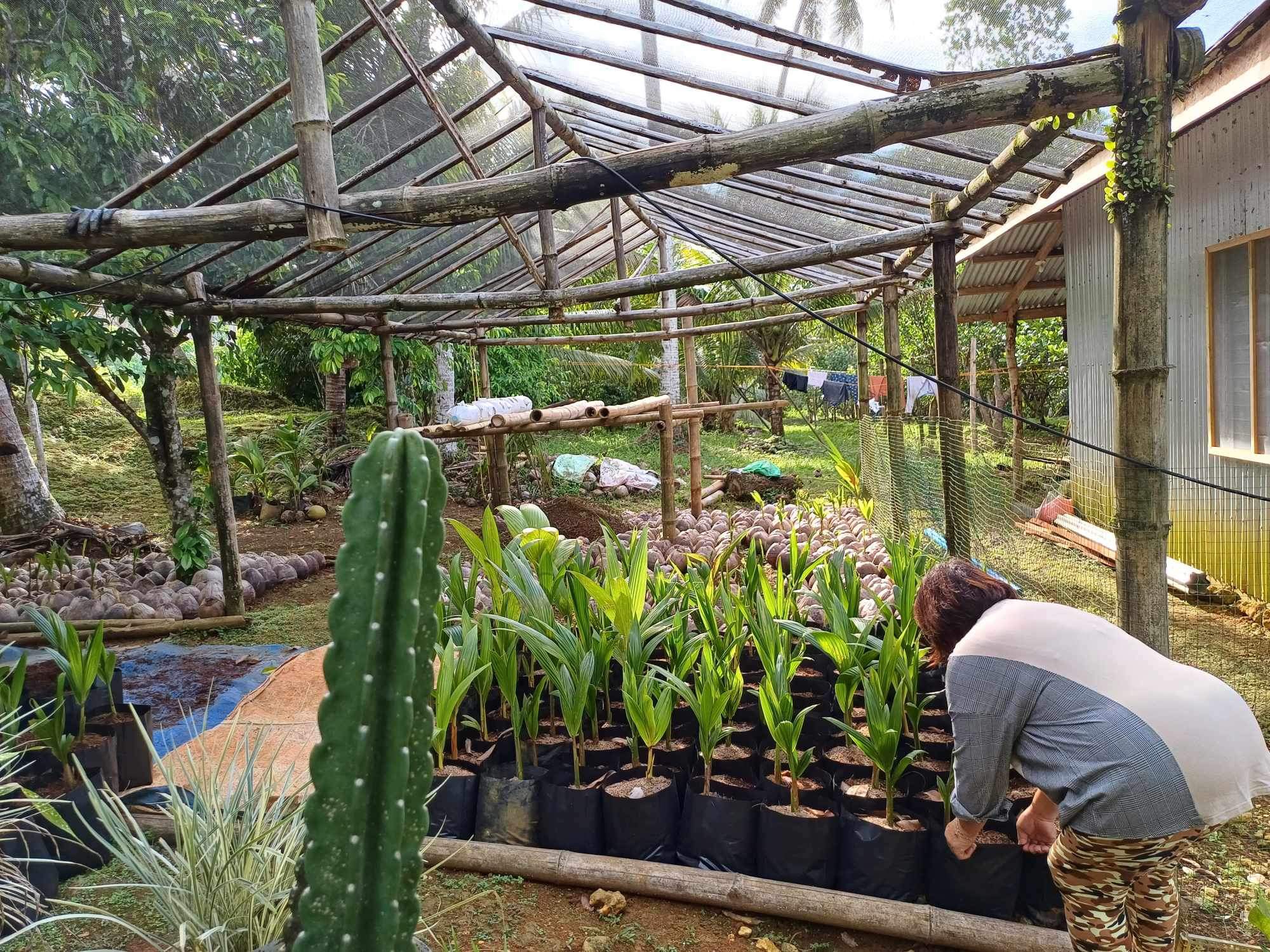
Their products are exclusively distributed through DTI Negosyo Centers and cooperative networks because their supplies are limited and their primary customers are nearby communities.
Dominga shared that their farm strongly supports organic farming practices. This is important as commercial fertilizers are costly compared to more affordable and sustainable organic methods.
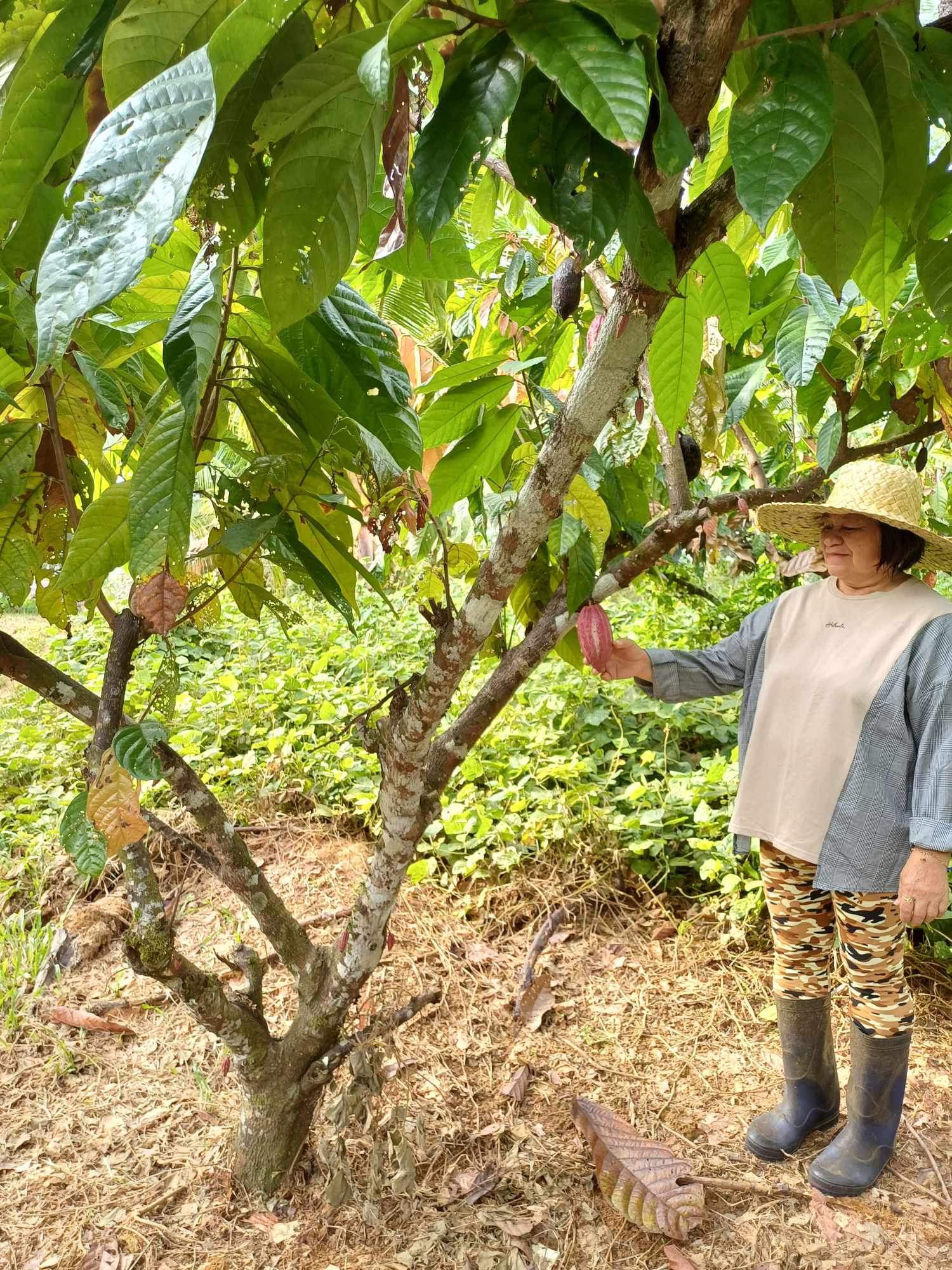
“We hope that by the name of our farm, those who will taste our products will always want them,” Dominga said. “They will want them because they know that they are taking healthy products, that’s why we promote organic farming.”
In their current farming approach, they focus on using natural fertilizers like salt and seaweed, especially Sargassum, for their coconut and fruit trees. Additionally, they've crafted homemade foliar fertilizers from molasses and sargassum, a type of seaweed rich in over 70 nutrients.
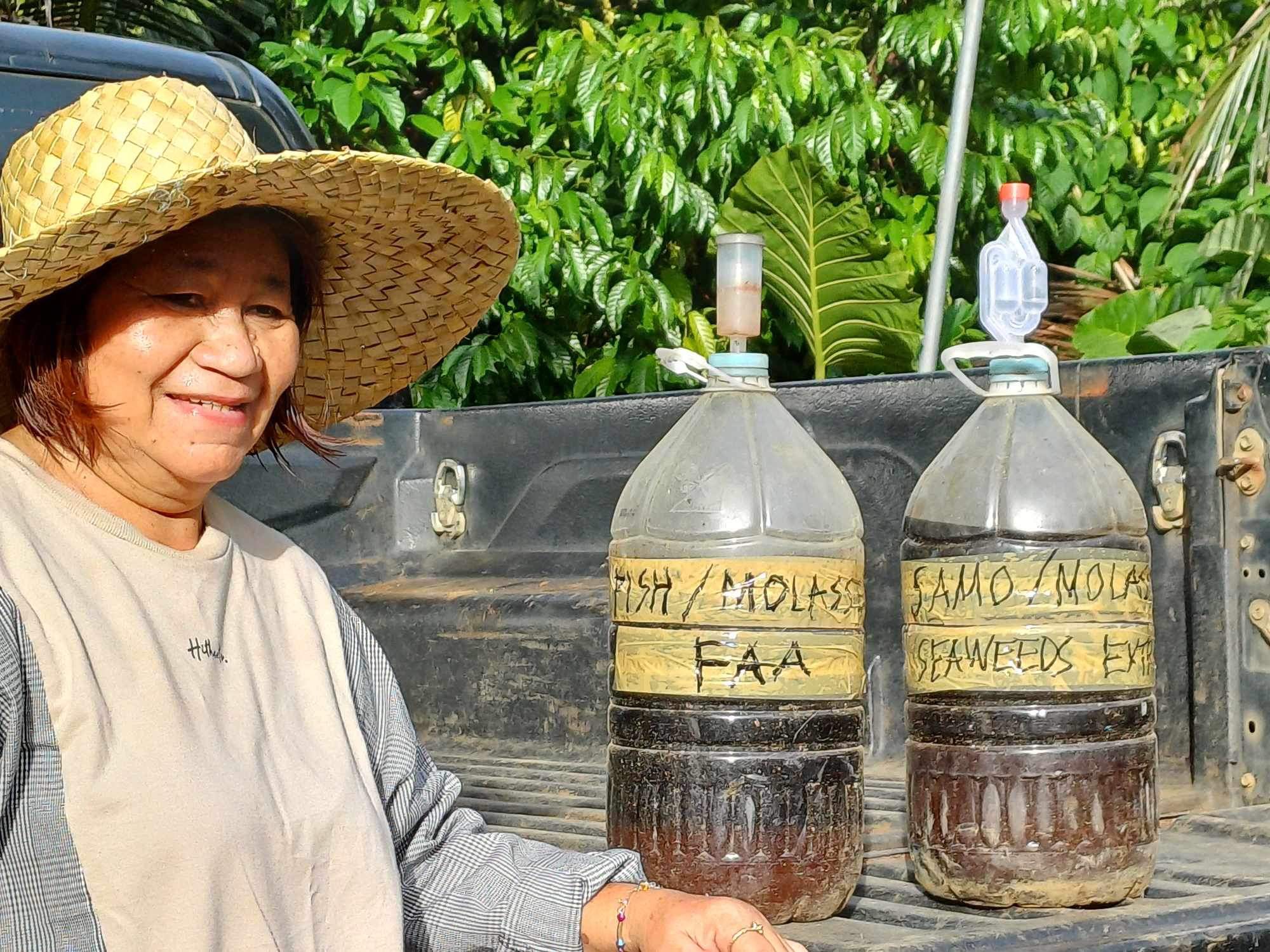
In addition, Dominga shared that the Philippine Coconut Authority (PCA) in CARAGA is scheduled to conduct a final evaluation of their farm, specifically in relation to coconut hybridization efforts. Should everything proceed as planned, OTAW Farm will be the sole hybridization practitioner in the area.
Pivoting during the pandemic
Amid the pandemic, Dominga started processing virgin coconut oil using the natural fermentation method. This method, known as cold pressing, avoids the use of heat entirely. Unlike heat-based methods that require costly machinery, cold pressing relies on natural fermentation alone. This choice is particularly crucial for preserving the integrity of lauric acid, a key component of VCO that is sensitive to heat. This approach has earned them recognition from the CARAGA Department of Agriculture Agricultural Training Institute, which just recently designated their farm as a Learning Site for Agriculture (LSA).
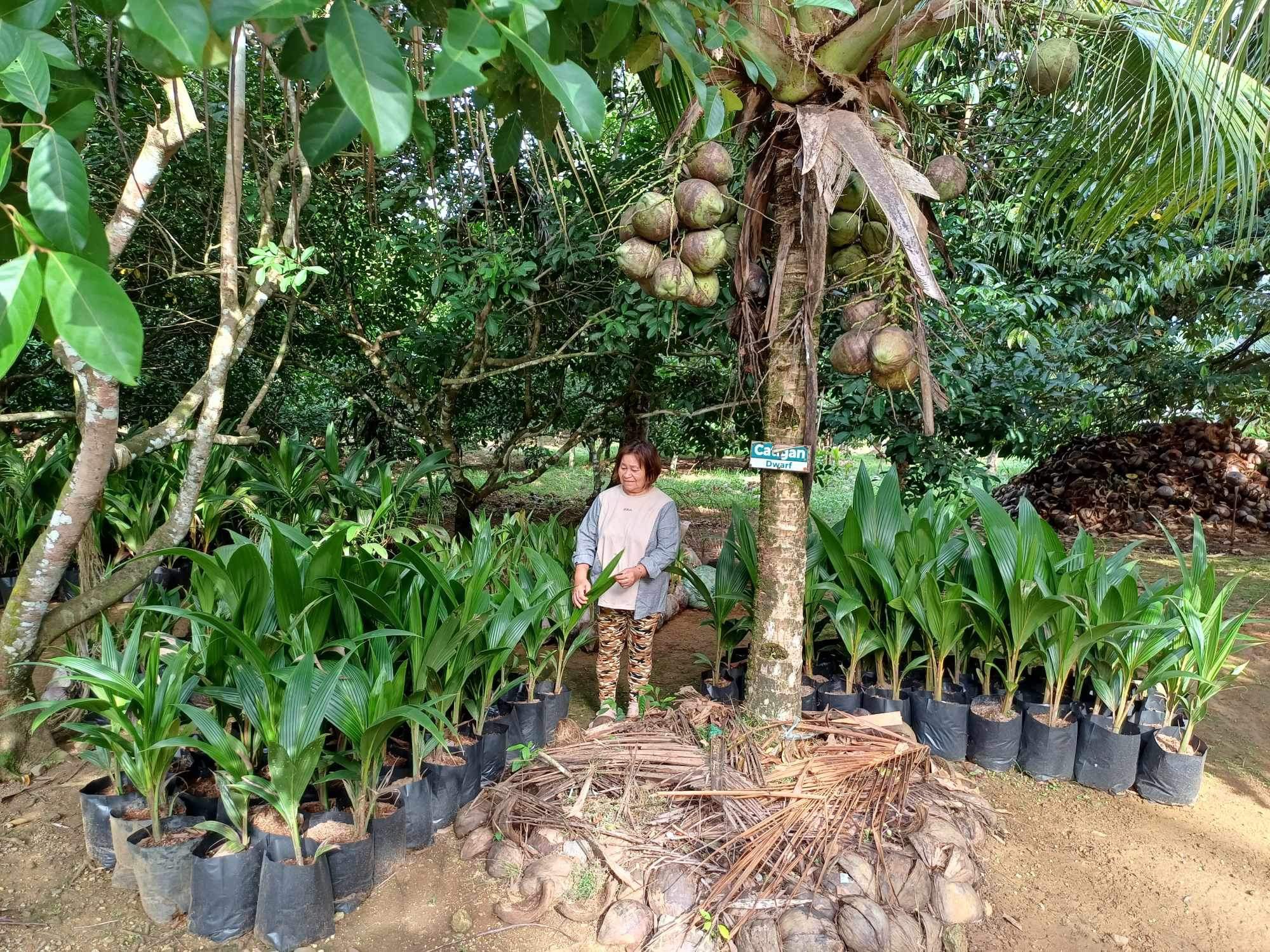
The local community initially found it hard to believe that oil could be extracted without the use of heat. However, as the health benefits of VCO gained recognition during the peak of the pandemic, their community supported them. This support boosted their motivation to produce VCO.
In order to expand the accessibility of their VCO, they applied for a License to Operate (LTO) from the Food and Drug Administration. The LTO serves as an authorization that enables establishments to engage in various business activities related to food products, including manufacturing, sale, distribution, and more. Obtaining this license was a significant step towards securing a certificate of product registration for their VCO.
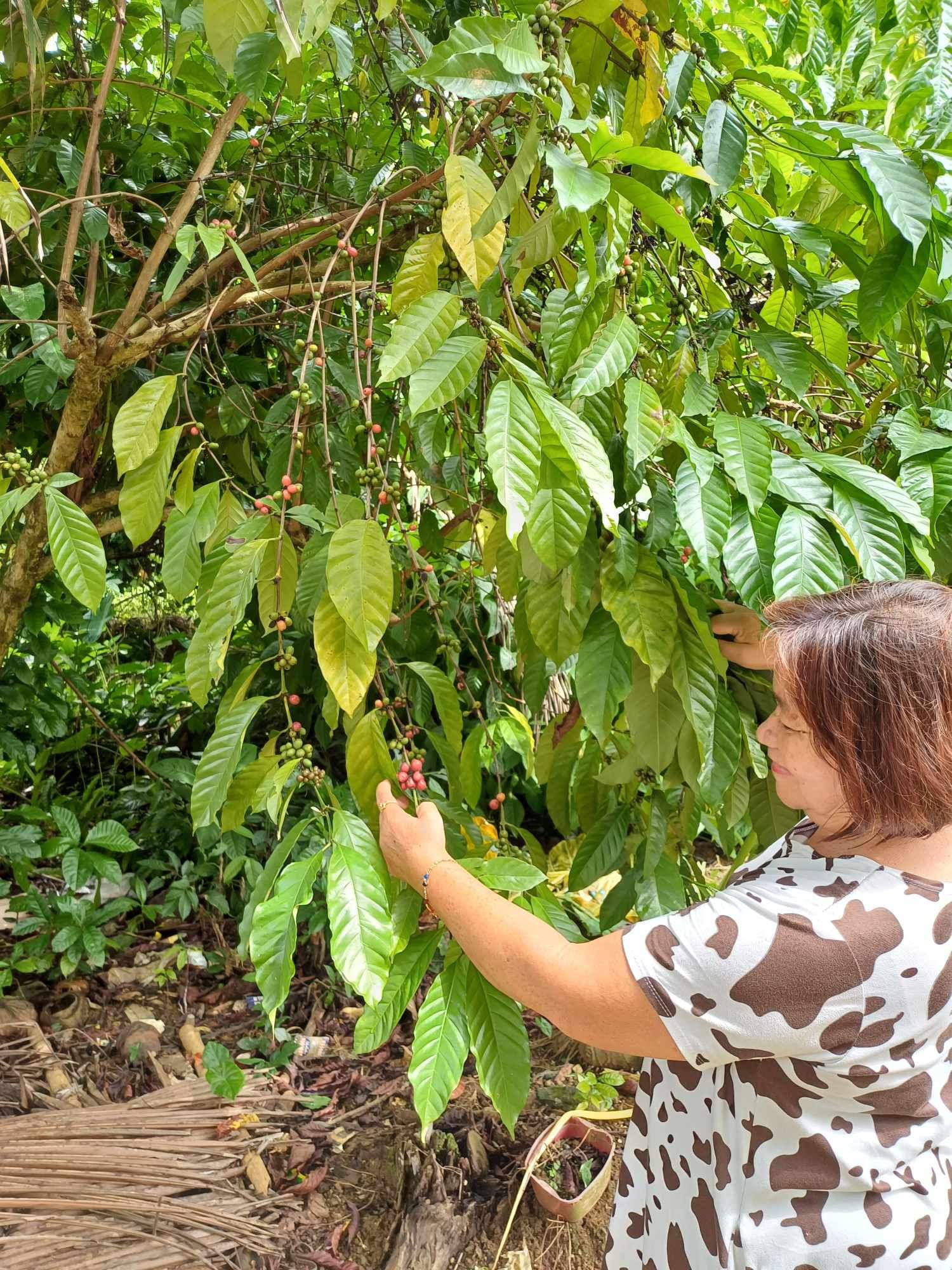
Beyond being a plantita
Dominga expressed her deep pride in her role as a farmer. Recognizing their significance as the driving force behind the food chain, she emphasized the indispensable role they play.
“Some people would call me ‘plantita’ and I’m happy being called that way,” she said. “But being a farmer is more than just a ‘plantita’ because it entails skills in managing crops that can contribute value to the community.”
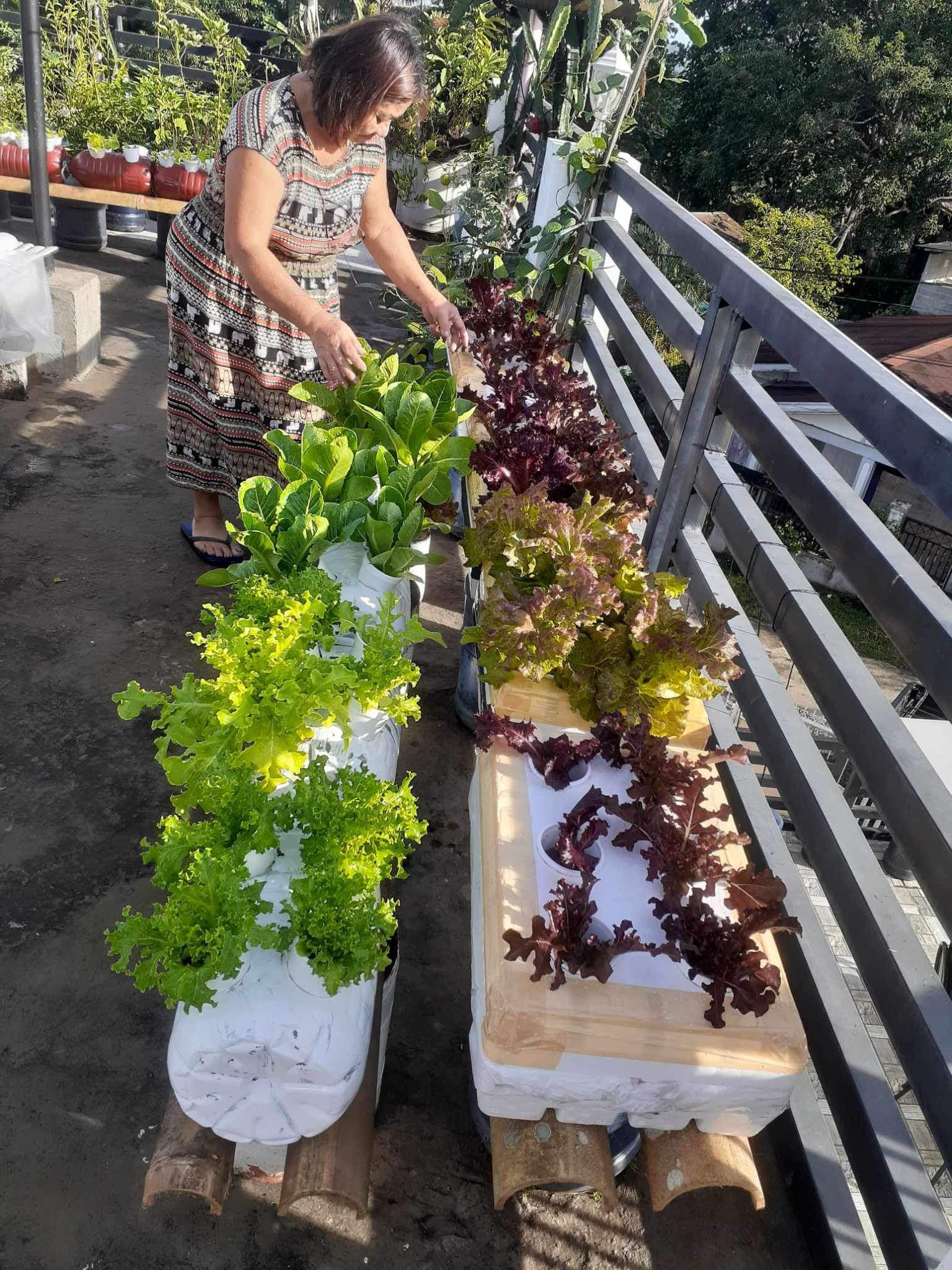
To Dominga, farming serves as a source of stress relief. She finds immense satisfaction in witnessing the growth of their plants, a rewarding experience in itself.
Among the many fulfilling moments she cherishes, one stands out—the approval of their application for a Learning Site for Agriculture. While they await the official awarding of the LSA Certificate, Dominga envisions their farm becoming a hub for training programs, technology demonstrations, and various extension activities facilitated by the Agricultural Training Institute (ATI) under the Department of Agriculture (DA).
Challenges and struggles
As a small farmer in the Philippines, Dominga faces a range of challenges. These include the need for more substantial financial assistance from the government, as well as striving for stability in the prices of agricultural products, particularly copra.
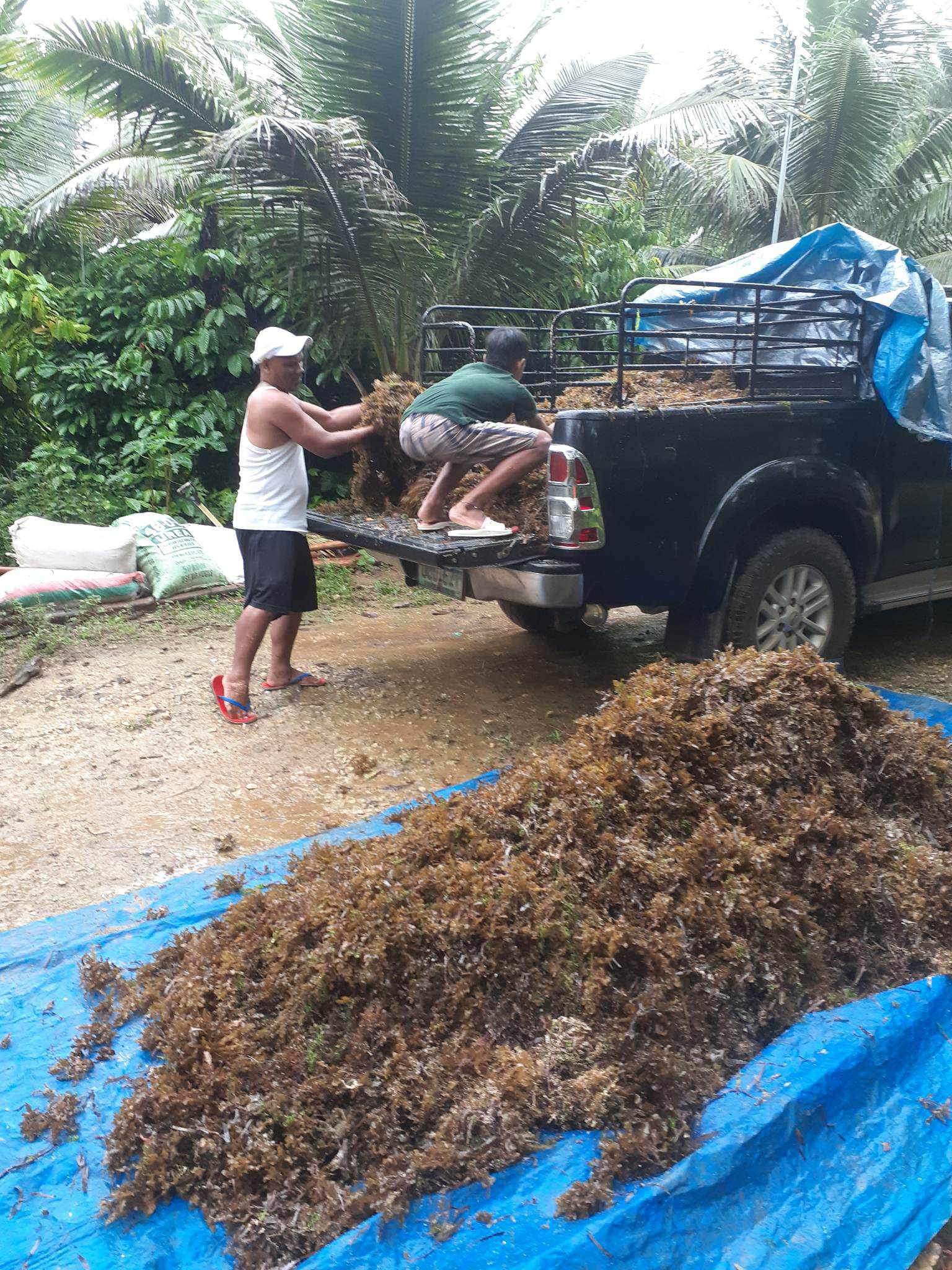
Another noteworthy challenge is the approval process of the Food and Drug Administration (FDA). During an audit conducted by the FDA, they outlined a set of requirements that needed to be met. However, due to limited resources, fulfilling these requirements remained a challenge. Despite this setback, Dominga remains hopeful that they will be able to address these compliance issues immediately.
Motivations and inspirations
Despite the challenges, Dominga's unwavering motivation to continue farming stems from her family, whose wholehearted support fuels her determination.
Dominga's dedication to farming is rooted in her genuine passion for the field. While she initially aspired to focus on farming after college, her priorities shifted after marriage and the arrival of her three children. With all her children having graduated, she now has the opportunity to pursue her farming interests. Her work is driven by a combination of hard work and gratitude.
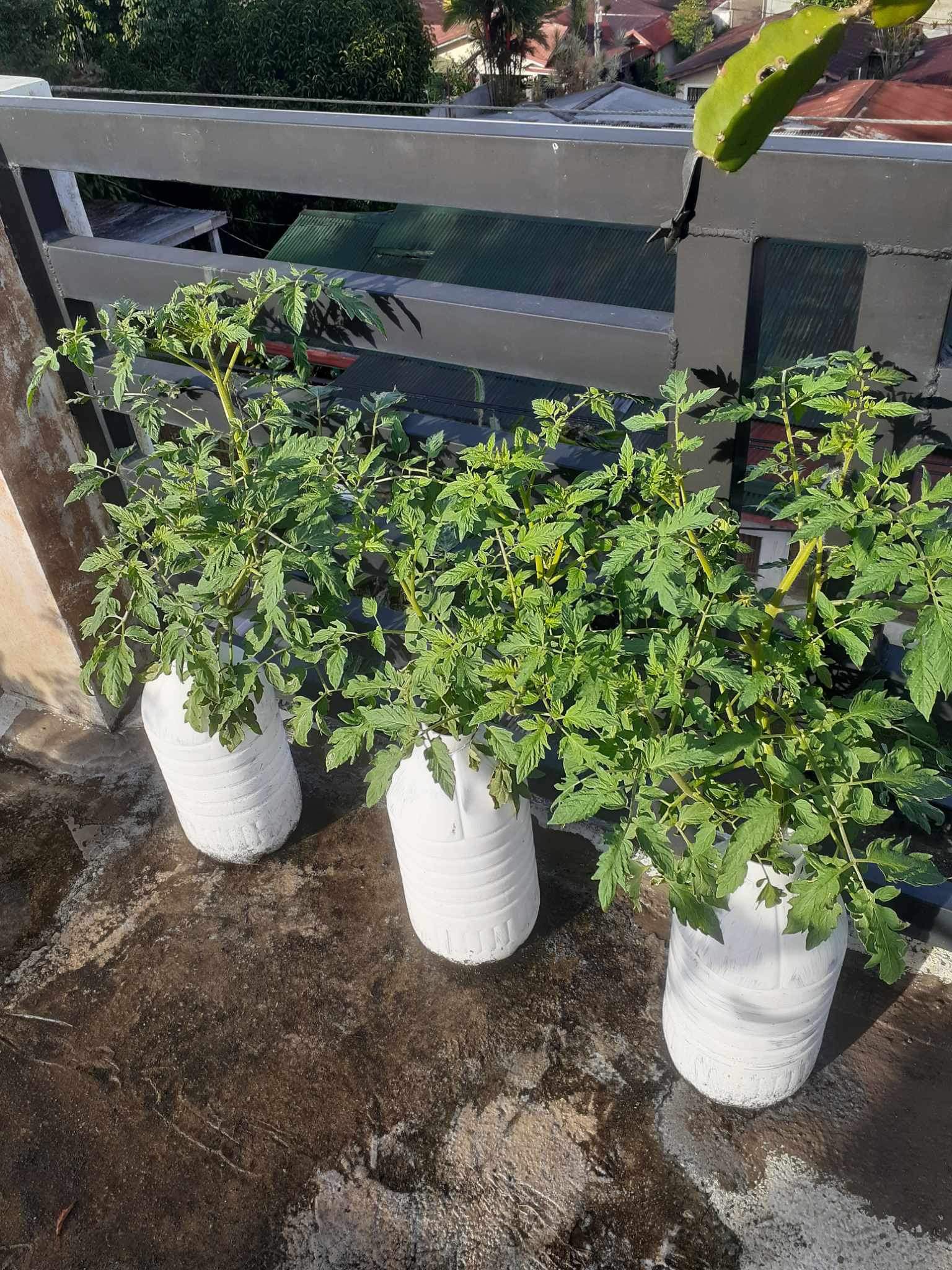
“Hard work because farming entails effort, patience, and a continuous learning process in making sure that our plants grow well while enjoying what I do,” Dominga said. “And gratitude because I am grateful for all the blessings and support received and grateful as well in imparting my knowledge in agriculture.”
A vision for community development
Dominga takes special pride in OTAW Farm's recognition as a LSA by the ATI. This achievement marks a significant milestone, positioning their farm as a hub for training, visits, and hands-on learning experiences. This status brings valuable opportunities for farmers, rural community members, and participants of ATI's training programs to enhance their knowledge and skills. Dominga also aims to achieve accreditation from TESDA.
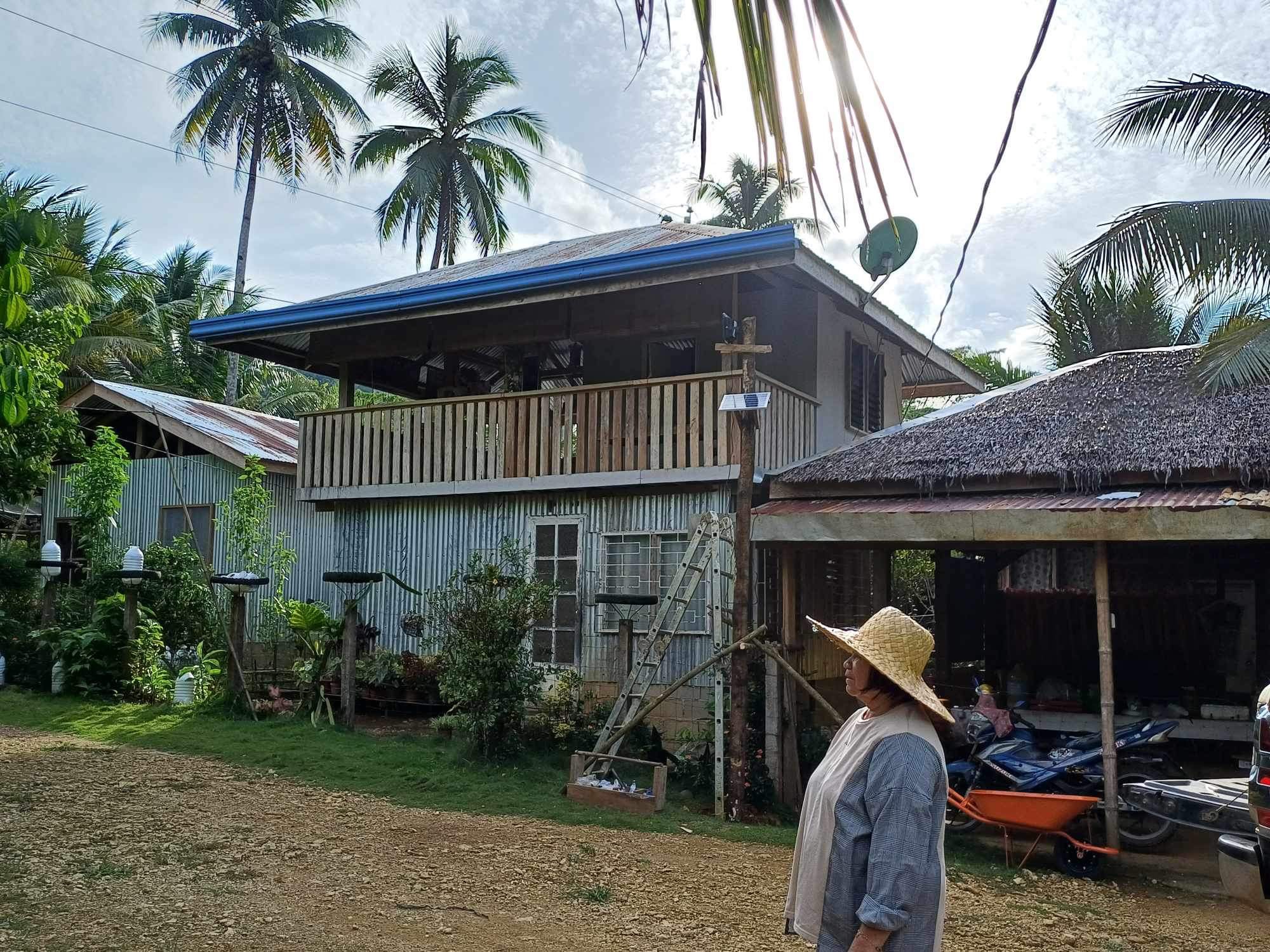
Dominga's vision for her farm's development revolves around a commitment to offer naturally farmed products that are not just for the people, but also by and with the people. Dominga is excited to share several upcoming initiatives aimed at enhancing their farm's offerings. The farm is in the process of launching initiatives such as buko pie production using coconut-based ingredients, balut making, crafting amakan (woven bamboo strips) bamboo products, and engaging in coconut hybridization.
By doing so, they aim to create employment opportunities for more individuals within the community. Dominga envisions their farm becoming synonymous with the title of "buko capital" in the CARAGA region.
Dominga firmly believes that her role as a small farmer carries significant implications for both the local community and the broader agricultural sector. Operating as a producer of dwarf coconut seedlings, they prioritize accessibility by offering their products at remarkably affordable prices.
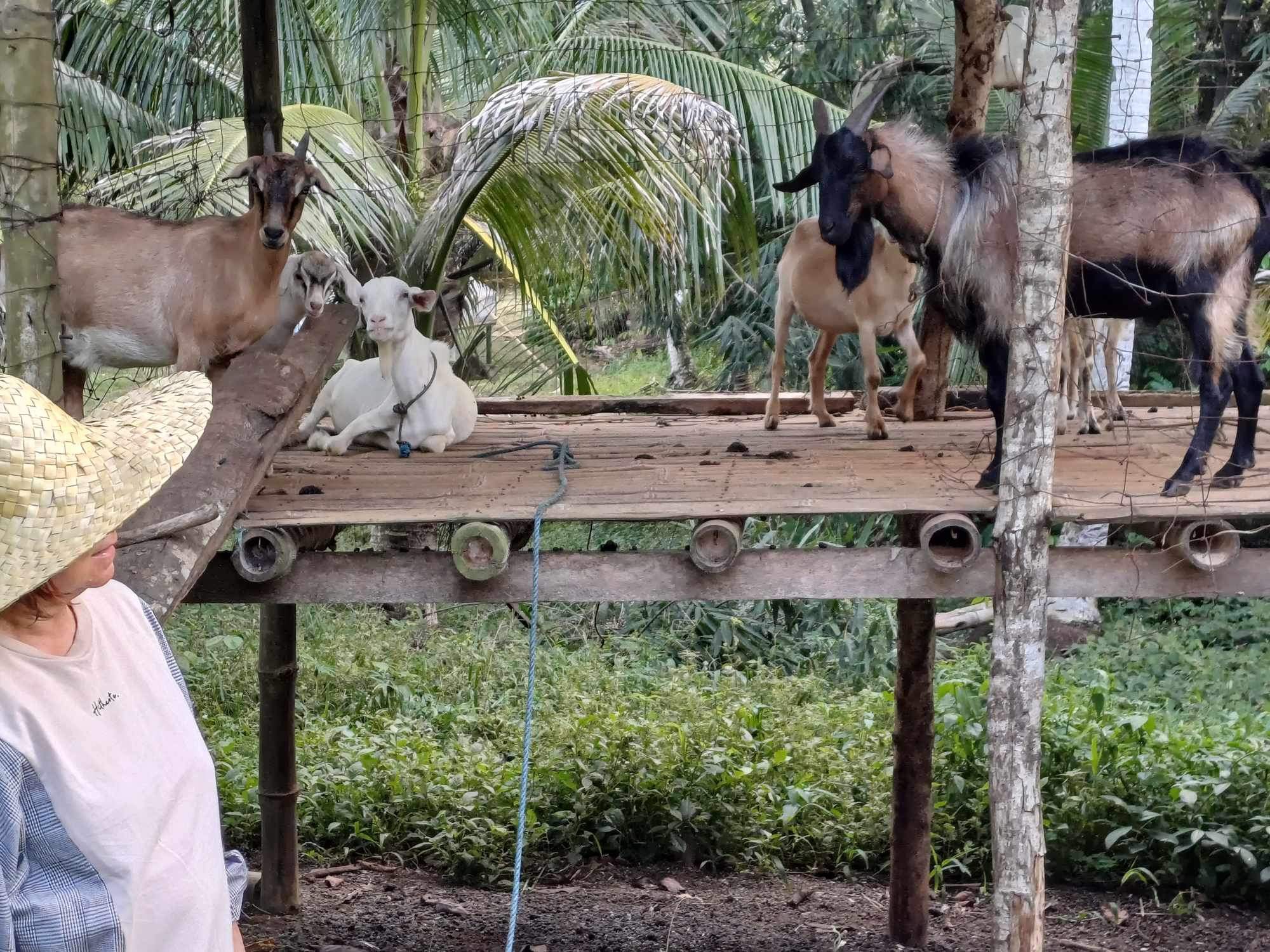
“We offer our products very affordable not only to our local community but also to Caraga Region,” Dominga said. “Consumers can now purchase and source from OTAW Farm instead of buying from Davao Region.”
Furthermore, Dominga is enthusiastic about sharing their agricultural practices, particularly their innovative use of seaweeds as fertilizer. They are proud to note that OTAW Farm is the sole entity incorporating Sargassum seaweeds as fertilizer.
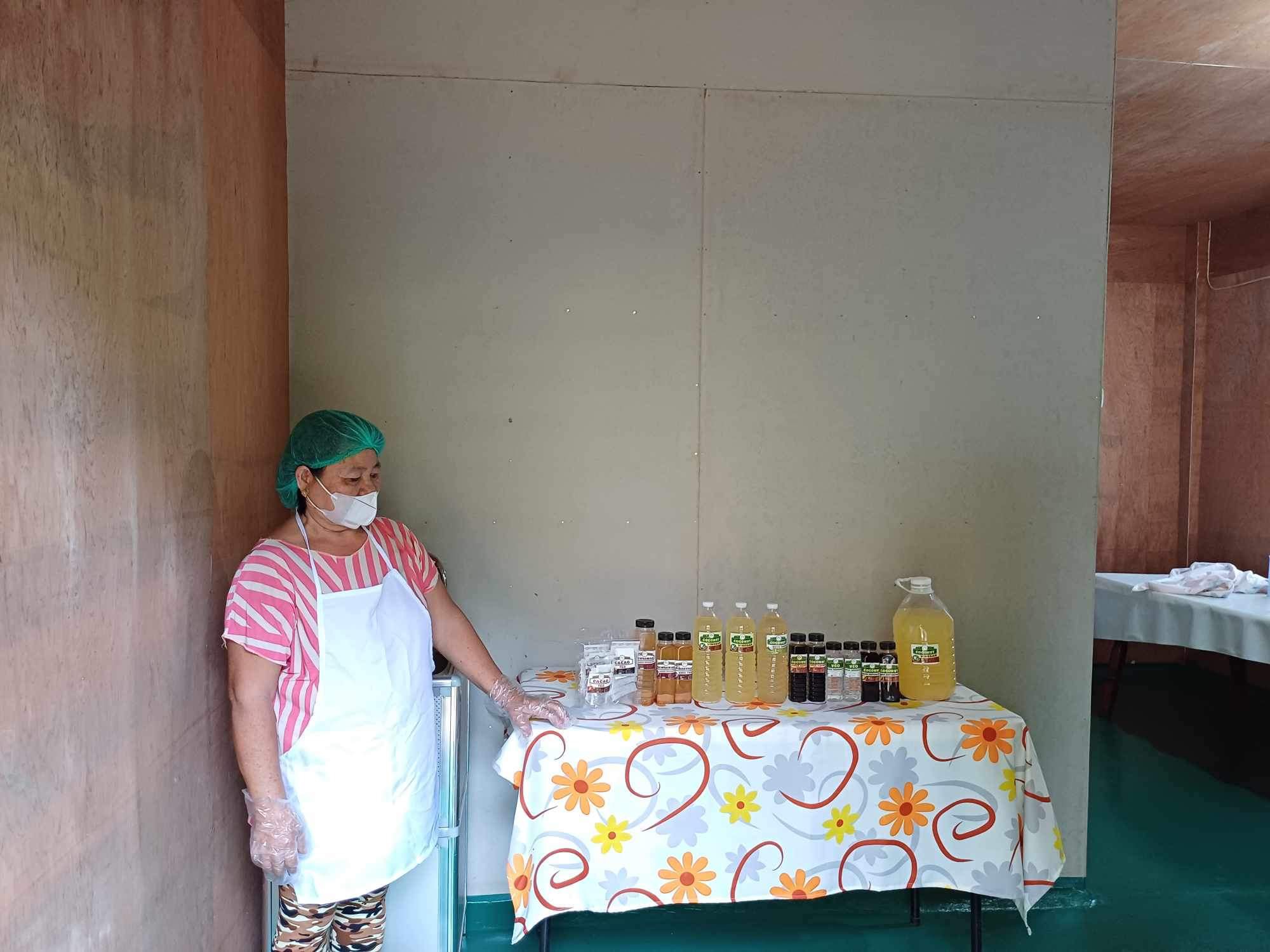
Hopes for the agricultural industry
Dominga envisions a transformed agricultural industry in the Philippines. “I am hoping we can learn from other countries where the government fully supports farmers.,” she said. “Farmers no longer look for buyers but the government itself buys all their produce at a reasonable price.”
Dominga's advice to aspiring farmers and the wider public is, "Plant, plant, and plant." She said that age should never be considered a barrier and that happiness and productivity are choices within reach.
Drawing parallels to the gradual growth of plants, Dominga highlights the patience required for seeds to transform into thriving crops. “If you can't harvest what you planted now, then your sons and daughters or even grandchildren will, later on, enjoy the fruits of your labor in the future."
Photo courtesy of OTAW Farm